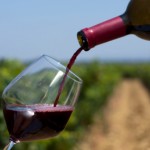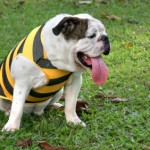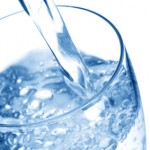We're just back from 3+ weeks in Europe, almost all of that in Portugal. We had keys to an apartment situated in a village west of Lisbon and owned by old friends. Downstairs was a superb Brazilian restaurant and 100 feet from our buildings door was another, more casual eatery in a glass-sided tent-like structure. We dined at those two places a lot, but also rented a car, drove north, and stayed in walled cities, a university town and a farm in the Douro Valley raising grapes for Port wine, olives and some fruit.
We discovered a new style of eating and drinking, far different from American fast food restaurants or home meals eaten on a couch in front of a television set or hurriedly at a table. Many of our dinners lasted well over two hours and almost all were accompanied by red wine.
We had already, over the past few years, changed our style of eating, at least for our evening meal. We move from the kitchen area to the dining room, serve one course at a time, portion out our meat, salad, and vegetables in the kitchen so we don't have platters of food before us as a temptation to refill our plates. We slow down, talk and reflect on our day or on issues of substance. Perhaps three times a week we have a glass of wine, almost always a sweet white varietal. Our dinners often stretch out to an hour in length, sometimes longer.
I've read about the supposed health benefits of red wine (the Mayo Clinic website has an excellent short review on the subject) and, in recent years, realized there are some reds I can drink without having the kind of reaction (mostly nasal stuffiness) I got from Cabernet sauvignon in the early 1970s. I went back to a March 2011 update from Mayo's which, with appropriate cautions, discusses an antioxidant named resveratrol, which comes from grape skins. Because red wine is fermented with grape skins longer than is red wine, it contains more of this polyphenol chemical.
I knew I wanted to try and likely buy some Port. That was easily done during our four-day farm-stay. But elsewhere in Portugal there were various other local red wines. So we walked from our hotel to a restaurant (I don't drink and drive), ordered some red wine and markedly changed our eating style.
Take a bite, put down the utensil, savor, swallow and then talk for a while. Our meals stretched out to two hours and often beyond. In one restaurant we were next to a French couple and beyond them was a Canadian couple. We entered the place before either and left last.
We usually ate bread (freshly made) and ate desserts. I knew I would gain a few pounds, but I also knew I could lose it quickly when we returned home. The food, on average, was wonderful. We ate lots of fresh fish, lots of vegetables and the occasional mousse de chocolata. We hope to carry over some of those habits now that we're home.




